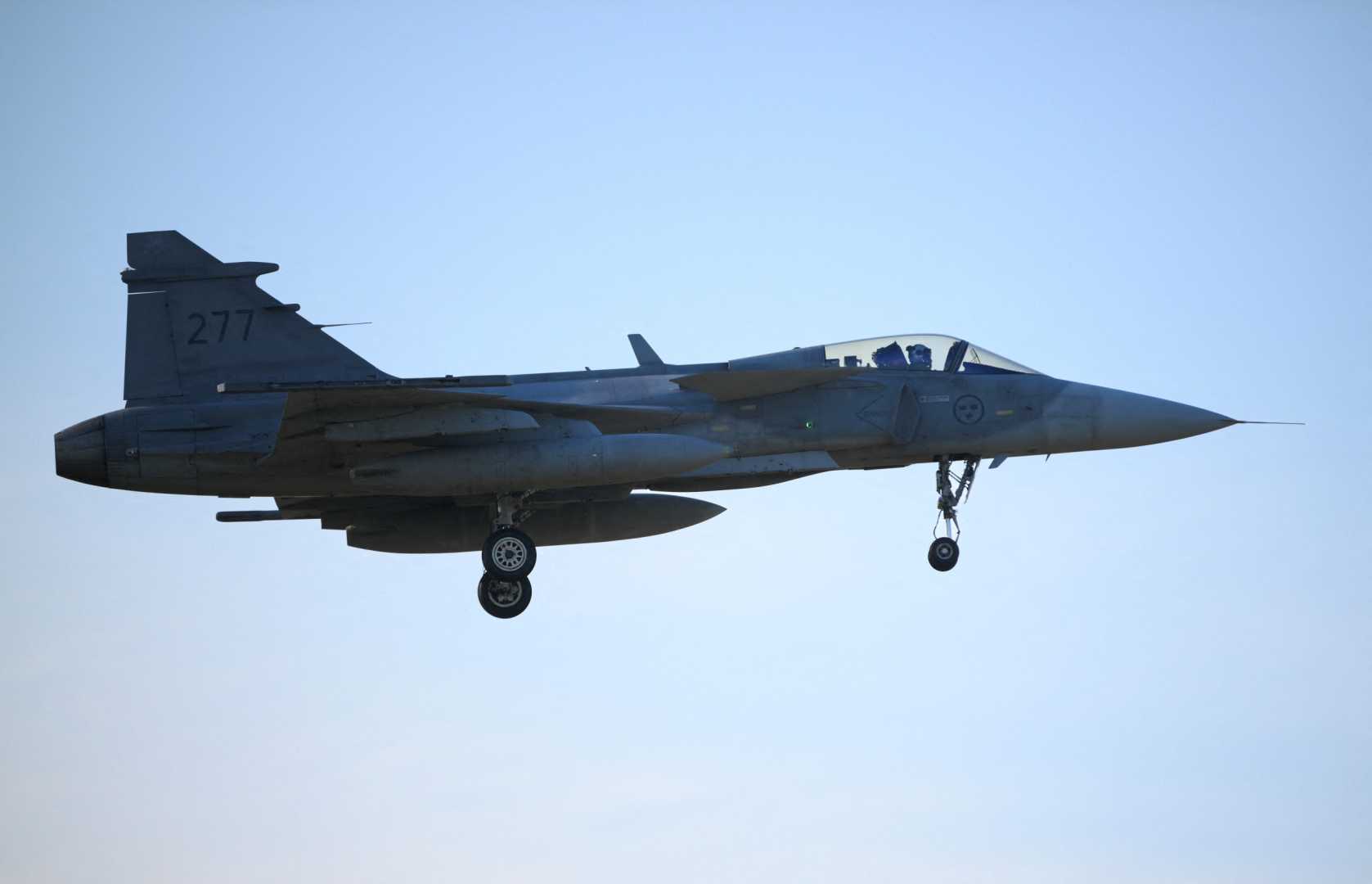News
Sweden Scrambles Jets Amid Increased Russian Military Activity in Baltic Sea

Malmo, Sweden — Sweden scrambled military aircraft on Friday after Russian fighter jets were spotted over the southern Baltic Sea. The Swedish Armed Forces deployed two JAS Gripen planes at approximately 6:15 p.m. to investigate the Russian Sukhoi Su-30 aircraft, which did not violate Swedish airspace.
This action comes amid heightened tensions in the region, following warnings from German Foreign Minister Johann Wadephul regarding potential destabilizing operations from Moscow. Wadephul described these military provocations as threats to the peace in the Baltic region.
Swedish Armed Forces spokesperson Mikael Ågren stated that the operation wasn’t scheduled and was a routine patrol by Swedish forces. He noted, “We need to keep track of which aircraft are in our vicinity.”
The incident follows a series of Russian flights near NATO airspace over the past weeks, coinciding with NATO military exercises in the Baltic Sea. During these operations, the UK Royal Air Force Typhoon jets, stationed in Poland, have also been active, scrambling six times in six days to intercept a total of 15 Russian military aircraft.
On Saturday, June 7, British Typhoon jets intercepted an Antonov An-30 CLANK reconnaissance aircraft and an Ilyushin Il-20M COOT A electronic intelligence aircraft, both operating near NATO borders. These engagements reflect a significant increase in Russian intelligence operations in the area.
Ågren assured the public that the sound of Swedish planes in the sky is “the sound of freedom you hear,” and urged citizens not to be alarmed by the increased military activity.
Sweden’s recent accession to NATO has created what some are calling a “NATO Lake” in the Baltic Sea, prompting a surge in military presence and activities among member nations.
The Swedish military’s swift response underscores NATO’s commitment to maintaining security and deterring aggression in the region, as the Baltic Sea’s strategic significance continues to grow amidst ongoing geopolitical tensions.












